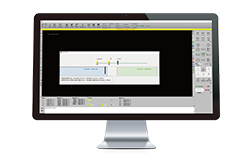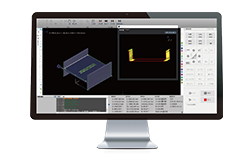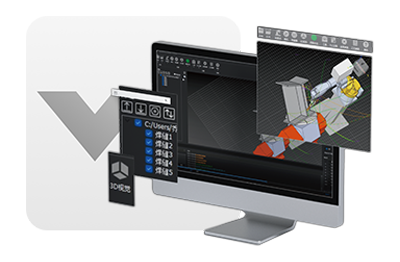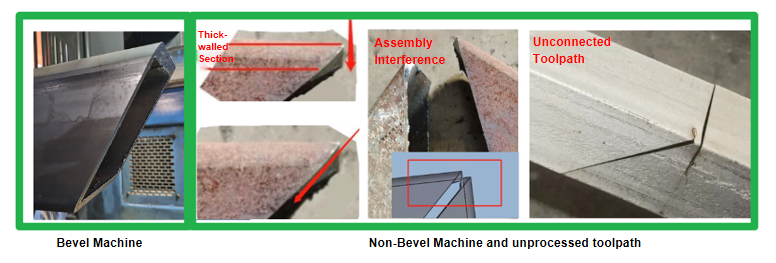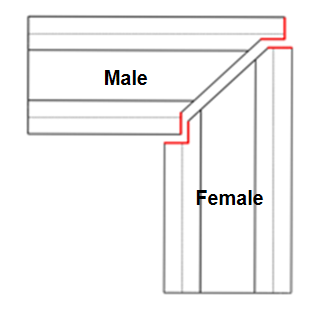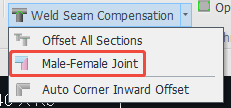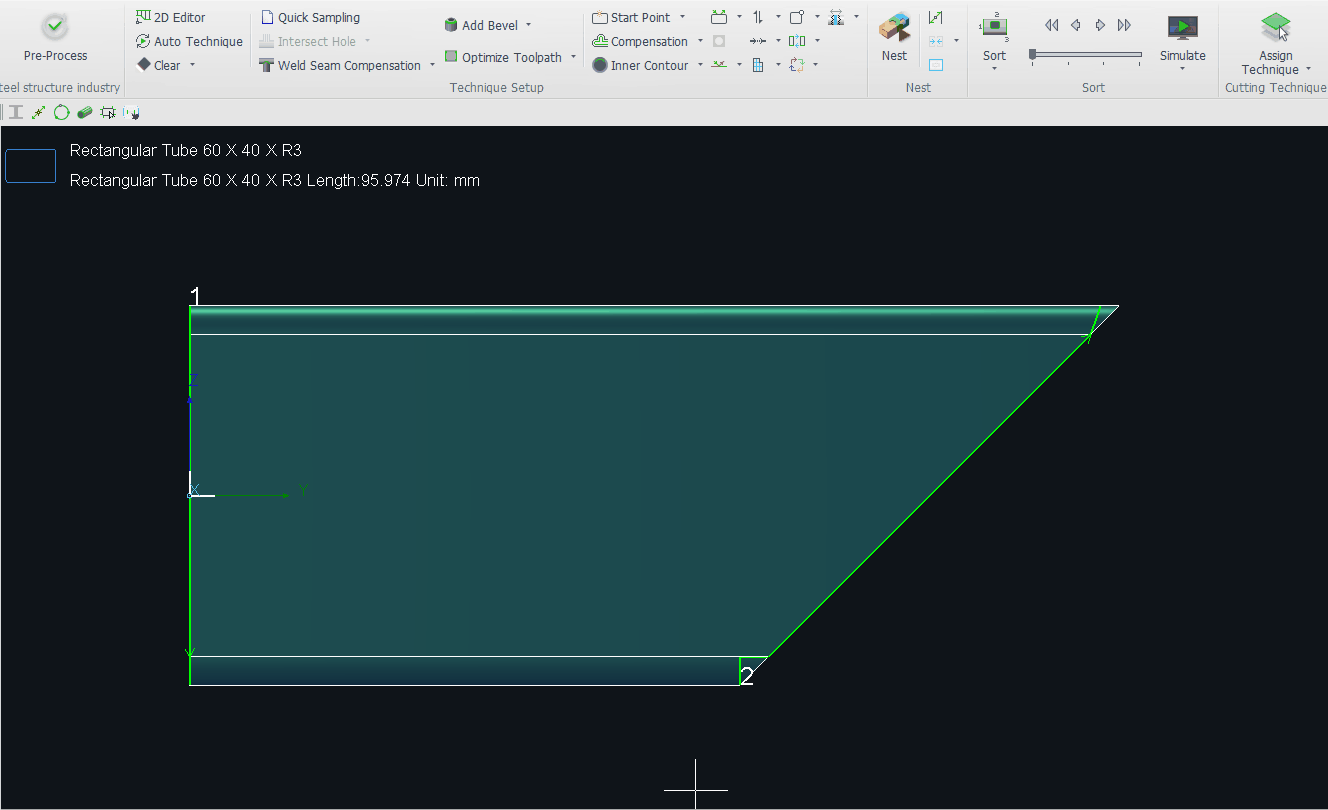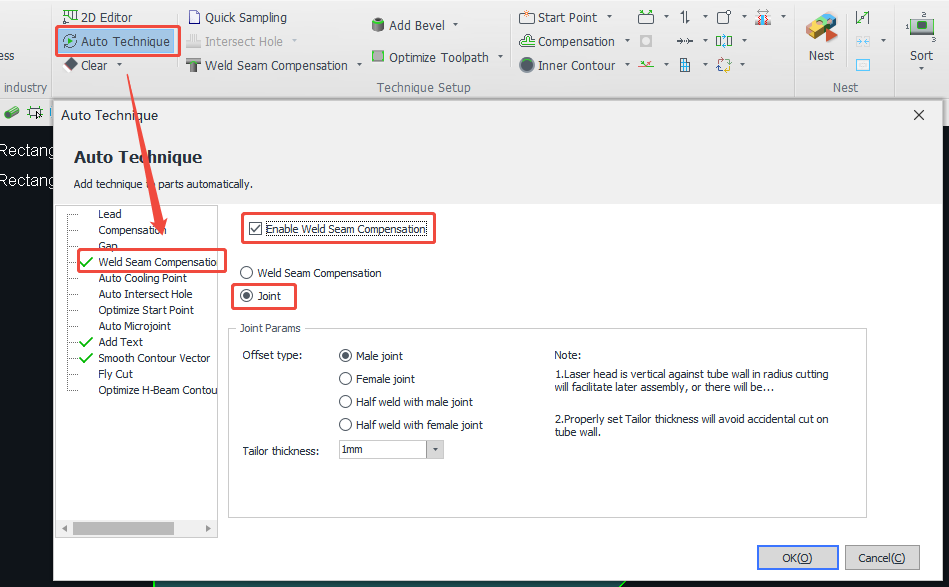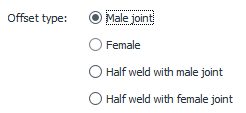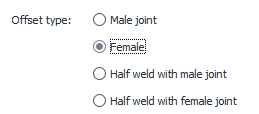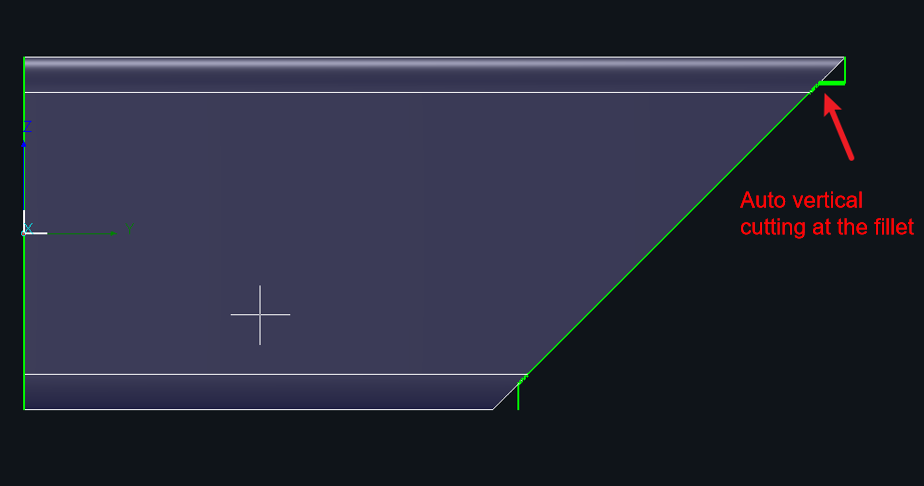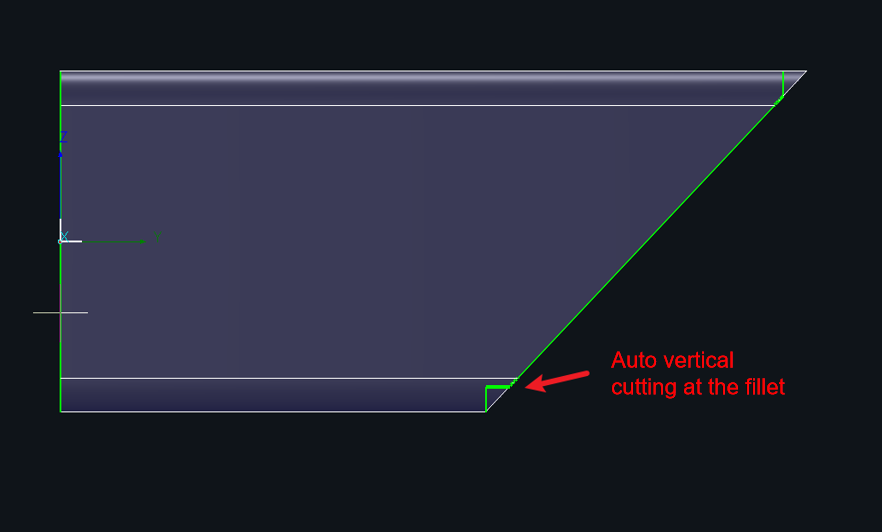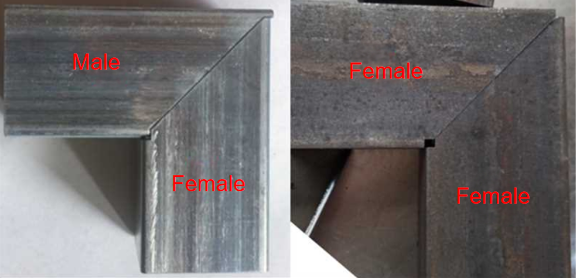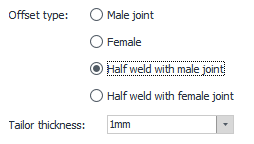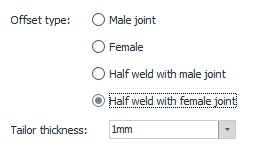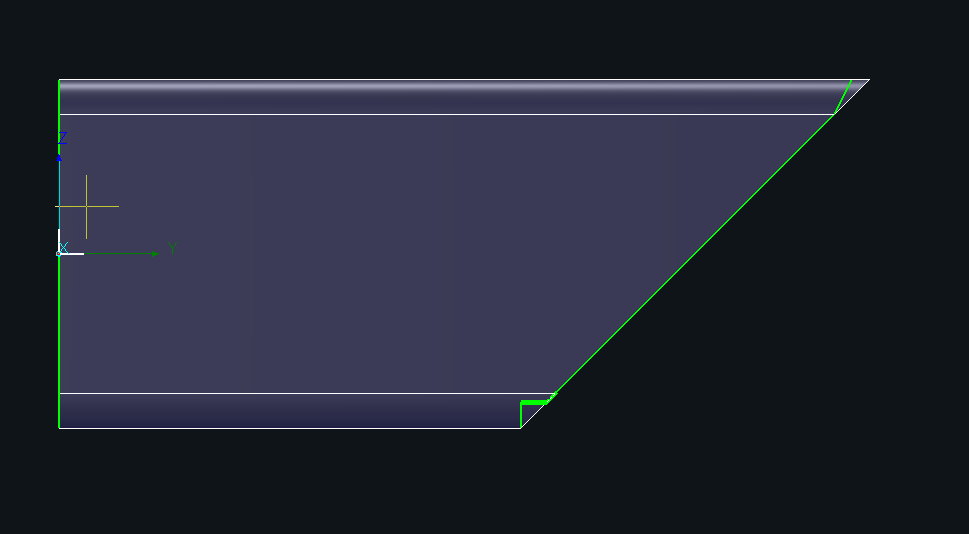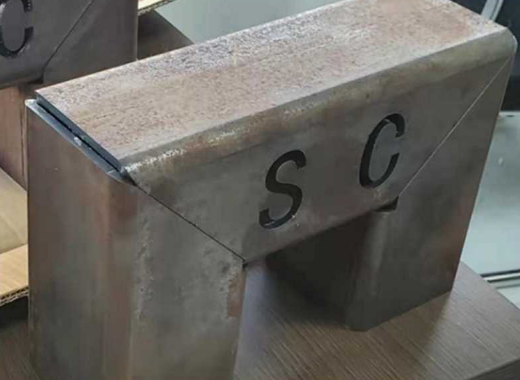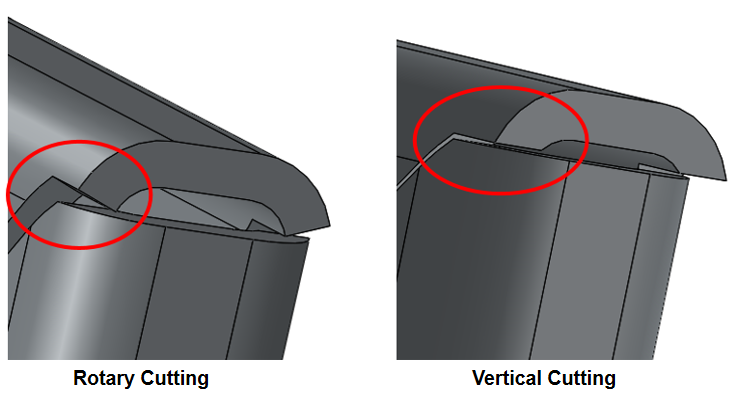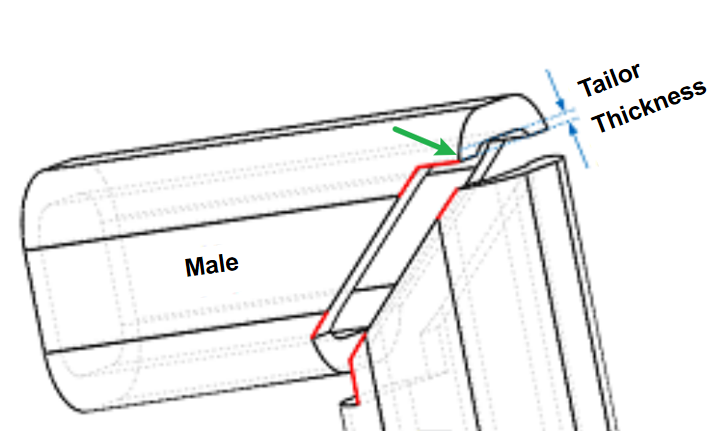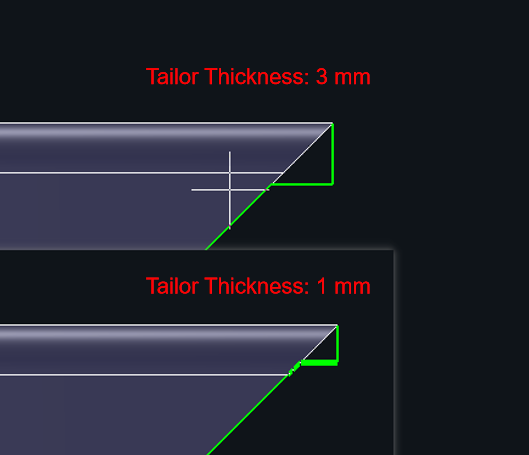-
Products
Overview Products
-
2D Cutting
-
Tube Cutting
-
3D Cutting
-
Intelligent Welding
-
Intelligent Cutting Head
-
Industrial Automation
-
Industrial Software
-
Combination
-
Combination
BOCHU New Product -
Combination
BOCHU New Product -
Controller
BOCHU New Product -
2D Cutting Head
Tube Cutting Head
3D Cutting Head
Consumables
BOCHU New Product -
Servo
BOCHU New Product -
Industrial 4.0
-
- Support
- About
- Online Store


- Software Download
- Manual
- Video
- Tutorial
I. Overview
For machines without bevel cutting functionality, the cutting head remains vertically oriented and cannot produce angled cuts through the thickness of the tube wall section. This results in interference at thick joint areas, and in the case of angle or channel steel, leads to unconnected toolpaths.
To address these issues, you can use the Male-Female Joint feature to automatically adjust the toolpath at thick-walled sections, enabling non-bevel machines to process bevel parts and achieve successful assembly.
II. How to Use
1. Feature Access
Starting from version 7.1.25, the 【Male-Female Joint 】is available for rectangular tubes.
Starting from version 7.1.39, the 【Half Weld with Male/Female Joint】 mode is supported.
2.Applicable Scope
This feature is intended for processing rectangular tube and channel section using non-bevel machines, especially recommended for 45° tilt cuts (L-shaped joints).
If a beveling machine is used, you can directly identify or generate bevels. Refer to tutorial: Set and Scan Bevels.
Note: Italic texts with blue highlights are clickable tutorial links that lead to detailed parameter explanations and usage instructions.
3.Feature Location
Click Male-Female Joint in the drop-down list of Weld Seam Compensation.
4. Operation Instructions
Select the target part in the current window.
If you are already familiar with the feature, you can enable 【Auto Technique】:
-
-
-
Configure the parameters before importing parts;
-
Batch import parts with the same parameter requirements;
-
The software will automatically apply the appropriate toolpath during import.
-
-
5. Parameter Description
| Parameter | Description & Recommended Use Case |
|
Compensation Type: Male/Female
|
"Male + Female" or "Female + Female" combinations both deliver excellent L-shaped joints. While "Male + Male" combinations will fail due to interference.
|
|
Compensation Type: Half weld with male/female joint
|
For mitered rectangular tubes with large bevel angles and thick walls, the inner protrusion can still cause interference during assembly—even after applying Weld Seam Compensation—resulting in failed joints. In such cases, you can use Half Weld with Male/Female.
|
| Vertical cutting for fillet sections |
When the fillet depth is significantly greater than the wall thickness, the B-axis may rotate during cutting, resulting in interference. Enable this option to cut fillet sections vertically. This is enabled by default in newer versions. For older versions, please select it manually. If vertical cutting is not applied in your version, please click here → Software Download.
|
| Overcut adjustment for thick-walled sections |
To prevent cutting into the tube wall during vertical cuts, the toolpath will be shifted slightly inward. The recommended value is 1 mm, but you may adjust it as needed.
|
I. Overview
For machines without bevel cutting functionality, the cutting head remains vertically oriented and cannot produce angled cuts through the thickness of the tube wall section. This results in interference at thick joint areas, and in the case of angle or channel steel, leads to unconnected toolpaths.
To address these issues, you can use the Male-Female Joint feature to automatically adjust the toolpath at thick-walled sections, enabling non-bevel machines to process bevel parts and achieve successful assembly.
II. How to Use
1. Feature Access
Starting from version 7.1.25, the 【Male-Female Joint 】is available for rectangular tubes.
Starting from version 7.1.39, the 【Half Weld with Male/Female Joint】 mode is supported.
2.Applicable Scope
This feature is intended for processing rectangular tube and channel section using non-bevel machines, especially recommended for 45° tilt cuts (L-shaped joints).
If a beveling machine is used, you can directly identify or generate bevels. Refer to tutorial: Set and Scan Bevels.
Note: Italic texts with blue highlights are clickable tutorial links that lead to detailed parameter explanations and usage instructions.
3.Feature Location
Click Male-Female Joint in the drop-down list of Weld Seam Compensation.
4. Operation Instructions
Select the target part in the current window.
If you are already familiar with the feature, you can enable 【Auto Technique】:
-
-
-
Configure the parameters before importing parts;
-
Batch import parts with the same parameter requirements;
-
The software will automatically apply the appropriate toolpath during import.
-
-
5. Parameter Description
| Parameter | Description & Recommended Use Case |
|
Compensation Type: Male/Female
|
"Male + Female" or "Female + Female" combinations both deliver excellent L-shaped joints. While "Male + Male" combinations will fail due to interference.
|
|
Compensation Type: Half weld with male/female joint
|
For mitered rectangular tubes with large bevel angles and thick walls, the inner protrusion can still cause interference during assembly—even after applying Weld Seam Compensation—resulting in failed joints. In such cases, you can use Half Weld with Male/Female.
|
| Vertical cutting for fillet sections |
When the fillet depth is significantly greater than the wall thickness, the B-axis may rotate during cutting, resulting in interference. Enable this option to cut fillet sections vertically. This is enabled by default in newer versions. For older versions, please select it manually. If vertical cutting is not applied in your version, please click here → Software Download.
|
| Overcut adjustment for thick-walled sections |
To prevent cutting into the tube wall during vertical cuts, the toolpath will be shifted slightly inward. The recommended value is 1 mm, but you may adjust it as needed.
|



